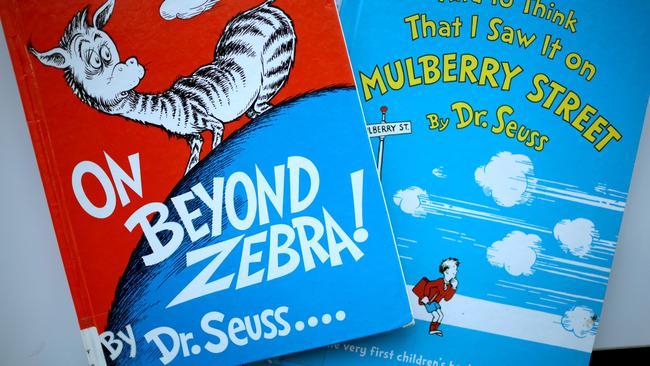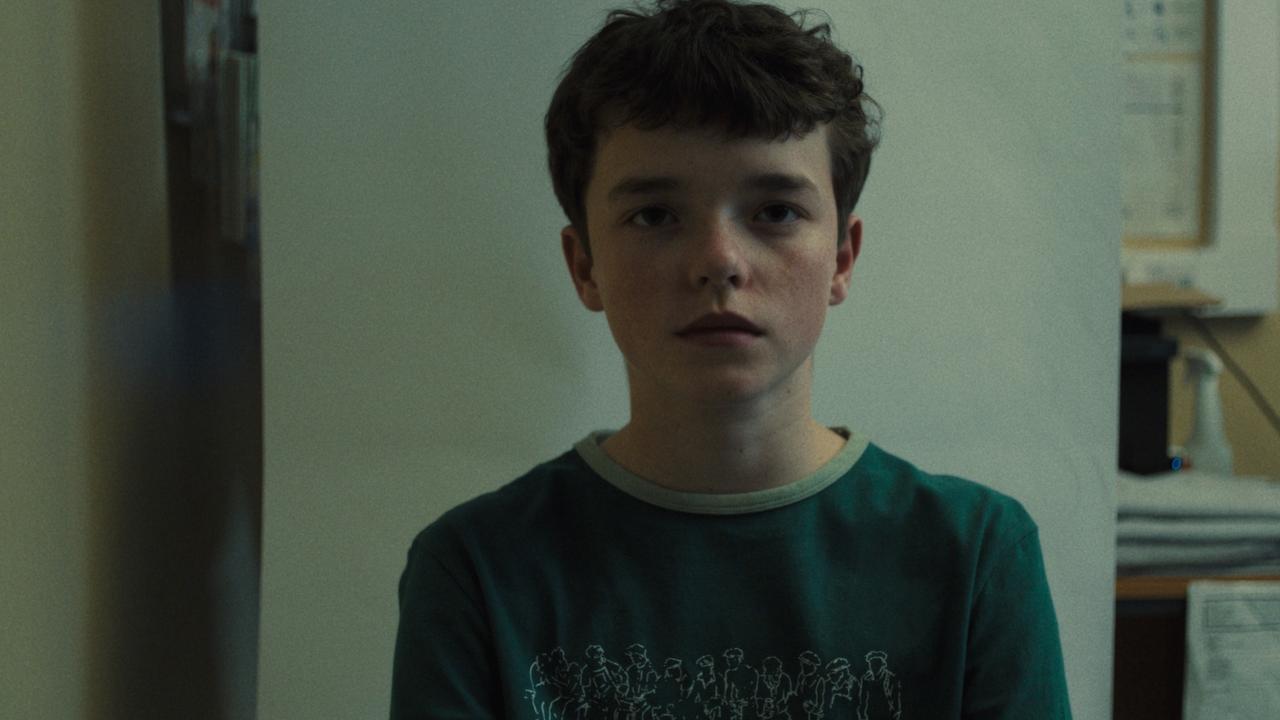Susie O’Brien: Give the good doctor a polish, not the boot
Six Dr Seuss books will no longer be published because of racist imagery, but surely we can we change what needs fixing and not ban these wonderful books.
Susie O'Brien
Don't miss out on the headlines from Susie O'Brien. Followed categories will be added to My News.
Dr Seuss books are being pulled from shelves.
I am sad about this, I am, I am. I am sad about this, I am. I want it to go away, I say, I want it to go away. It should not last another day!
This week we heard six Dr Seuss books will no longer be published because of racist imagery. It doesn’t matter that the books are only a handful out of 60; they shouldn’t be stopped or pulled from shelves.
I have no problem with tweaks being made to remove overt racism, or for new editions to be issued. But it’s sad to think that classics such as If I Ran the Zoo and And to Think That I Saw it on Mulberry Street will no longer be published.
It’s true there is a lack of characters of colour in Seuss books, and the 2 per cent that exist are largely caricatures. There are things that are out of step with our modern times, such as a depiction of a Chinese man with yellow skin and chopsticks and discussions about keeping a turbaned Arab in the zoo in an exhibit of “unusual beasts”.
Such things should be changed in future editions, however the books should not be banned altogether.
Surely the answer is to make sure kids read lots of other books that are more culturally diverse? To use these books as a discussion about diversity and inclusion rather than pull them from shelves?
Yes, we want inclusion but it doesn’t have to be on every page of every book — especially those written in the 1950s.
As always, I’m left wondering what’s next? Are the animal protectors going to weigh in and have a go at the foxes in Fox in Socks?

“We object to the depiction of the fox in the box which surely is tantamount to animal abuse and the inappropriate anthropomorphic characterisation that sees him wearing woollen foot coverings,” the letters will say.
“Furthermore, any suggestion of ducks licking lakes, gooses chewing gum and chicks doing tricks on bricks will surely encourage children to put the lives of their companion animals in grave danger.”
“And we object to the biased objectification of animals in the following line: ‘tweetle beetles battle with their paddles in a puddle on a noodle-eating poodle’. It is blatantly unfair against non-poodle breeds and discriminatory against those on the gluten-free vegan/flexitarian spectrum who can’t eat noodles.”
Just you wait. This will come.
The same book will also come under fire for “the heteronormative gender-specific outdated portrayals of domestic labour as seen in the depictions of Joe Crow and Sue”.
“There are too many dominant masculine characters. Joe should become Jane and Sue should stop sewing socks and get a law degree instead,” the objectors will opine.
Sigh.

Will Green Eggs and Ham become Spinach-infused Free-Range Eggs and Meat-free Protein Strips? Will Mr Brown can Moo! Can You! become the gender-neutral Mx Brown who Makes a Noise Like an Environmental Pest?
And don’t get me started about There’s a Wocket in my Pocket. Surely this is seen in some quarters as a betrayal of body confidence that’s triggering for vulnerable children? Please, no.
It is possible to keep the best of a classic children’s series but update it for today’s audience. That’s why Thomas the Tank Engine now worries about diesel emissions, the Fat Controller is now an Indian woman and Thomas’ new pal is steam engine called Shane from Australia. But such decisions should be appropriate, proportionate and minimal.
The problem is the screeching voices attacking Dr Seuss are growing louder. As one commentator believes, the much-loved The Cat in the Hat has its origins in black minstrel performances and should be pulled too.
Dr Seuss, such people point out, produced cartoons with many racist stereotypes. Yes, but it was early in his career, which started in the 1930s. Later in life Dr Seuss (Theodor Geisel) was an advocate for a range of progressive causes, including environmentalism (The Lorax). Books such as Horton Hears a Who! are all about inclusion and acceptance.
People going to great lengths to vilify Dr Seuss’ canon miss the point that his books are silly and fun. They’re about star-belly sneetches and quimneys in chimneys and things that like to sing.
Let’s tweak bits that need to be tweaked and get on with enjoying these wonderful books.
As Dr Seuss himself says: “The more that you read, the more things you will know. The more you will learn, the more places you’ll go!”
Susie O’Brien is a Herald Sun columnist. Her book, The Secret of Half-arsed Parenting, is out now.




